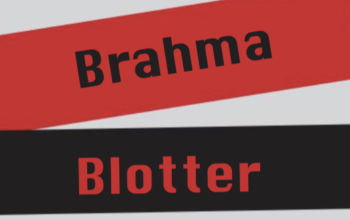
The community was treated to an all-day event regarding the upcoming elections in The Great Hall on Thursday.
Day of Politics was put on by professor of political science Dr. Denise Robb, along with the Associated Students Organization (ASO) and the Alpha Gamma Sigma Honors Society coordinated an effort to vamp up awareness of political issues and encourage students to participate in an alarmingly diminishing democratic process.
Eleven guest speakers including district attorneys, former mayors, representatives of partisan groups and Green party presidential candidate Dr. Jill Stein, were present.
Throughout the day, the League of Women voters were on hand to explain different propositions that would be on the November 6 ballot.
Representatives of the League believe in “fact-based information and open discussion.”
Propositions 31, 33, 35, 36, and 37 were broken downed for the audience.
League member Rebecca Beatty stood at the podium eager to enlighten the audience.
First was Proposition 35.
If passed, it will crack down on human trafficking, she clarified.
Currently human trafficking is defined as “the recruitment, transportation, transfer, harboring or receipt of persons, by means of the threat or use of force or other forms of coercion, of abduction, of fraud, of deception, of the abuse of power or of a position of vulnerability or of the giving or receiving of payments or benefits to achieve the consent of a person having control over another person, for the purpose of exploitation,” according to United Nations Office on Drugs and Crime website, www.unodc.org.
The bill would also expand the definition of trafficking to include “pimps” and those who distribute obscene material depicting minors are branded as sex traffickers and offenders.
“In California vulnerable women and children are held against their will and forced into prostitution for the financial gain of human traffickers,” Beatty said. “Many victims are as young as twelve”
Proposition 37 was also discussed.
Through this bill, raw and processed foods that contain genetically altered ingredients would have to be labeled as such.
However, there is a list of foods that would be exempt, which includes those sold for immediate consumption.
A restaurant, like McDonalds, which sells large quantities of genetically altered consumables, would not required to label their products if the bill is passed.
California legislature Deputy District Attorney Mario Trujillo and former Deputy District Attorney Steve Ipsen each shared their thoughts on Proposition 36 which focuses on the “three-strikes” law.
Prop. 36 revises the three strikes law to exclude non-violent, less serious crimes from the third felony.
“Our criminal justice system is addicted to incarceration,”Trujillo said when he first stepped up to the podium.
He defended the overall idea behind the law but feels the law needs improving.
“The intention of the 1994 [Three Strikes] law is on point,” Trujillo said.
However, 53 percent of criminals given life terms committed minor offenses as their third strike, according to Trujillo.
“What this proposition does is it fixes that last felony,” Trujillo said.
Ipsen begged to differ, and listed several crimes currently deemed non-serious or non-violent.
Solicitation to commit murder, transporting a bomb with purposes of mass destruction, child abuse, and torture of animals are considered serious felonies, according to Ipsen.
If Prop 36 passes, criminals committing these crimes as a third offense would receive 4-6 years of jail time, according to Ipsen.
“Under this ballot proposition you tie the hands of law enforcement, the DA, and the judge,” Ispen said.
When discussion of California propositions came to a conclusion, the stage was set for a more national platform.
Green Party presidential candidate Dr. Jill Stein made a guest appearance as part of her four day college campus tour.
Stein is a politician, taking part in legislature of her home state, Massachusetts.
In her speech the Green party candidate introduced a “Green New Deal.”
Similar to the New Deal plan of the great depression, Stein’s plan emphasized a revamping of infrastructure to create a more cost-efficient, eco-friendly society.
Under the plan there would be an increase in public transit and recreational transportation such as bike lanes and more space for pedestrian walkways, according to Stein.
Stein’s plan calls for bringing the troops back home and employing them domestically.
She also pushes free higher public education by refusing to raise tuition.
Stein explained her plan of attack on Wall Street, big business, and current unemployment rates.
“Instead of bailing out the banks, why don’t we bail out the students,” Stein said.
There will be more political events on campus leading up to the November elections, including a Town Hall Meeting tomorrow from 2-4p.m. in The Great Hall.
For those students were unable to attend the first day, a second Day of Politics has been scheduled for October 11, featuring a debate between Rep. Howard Berman and Rep. Brad Sherman.
Another highly anticipated event will be the debate on Proposition 30 between professor of sociology Dr. James McKeever and professor of economics Dr. Pamela Brown.




